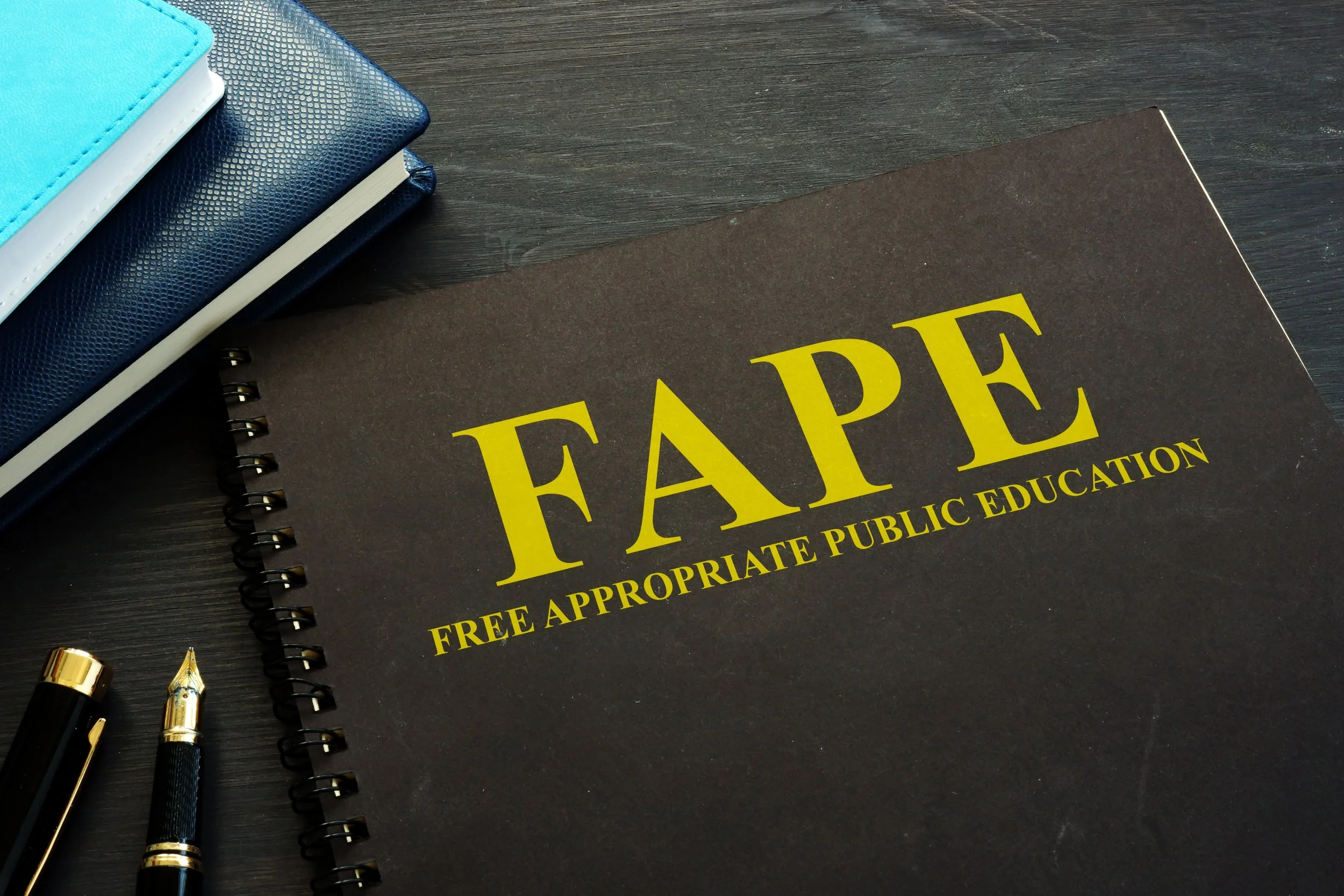
Free Appropriate Public Education
(FAPE)
Under the Individuals with Disabilities Education Act (IDEA) and Section 504 of the Rehabilitation Act of 1973 (Section 504), students with disabilities are legally entitled to have available to them, a Free Appropriate Public Education (FAPE), which is an education that emphasizes special education and related services, “designed to meet their unique needs and prepare them for further education, employment, and independent living” See, 20 U.S.C. § 1400(d)(1)(A).
Under IDEA, FAPE is defined, in part, as special education and related services that;
(a) have been provided at public expense, under public supervision and direction, and without charge;
(b) meet the standards of the State educational agency;
(c) include an appropriate preschool, elementary school, or secondary school education in the state involved; and
(d) are provided in conformity with an Individualized Education Program (IEP).
In more recent court opinions such as Endrew F. v. Douglas County School District RE-1, 580 U.S. 386 (2017), the United States Supreme Court clarified and held that
Providing a FAPE that meets the unique needs of a child with a disability, means “providing a level of instruction reasonably calculated to permit advancement through the general curriculum.”
Even if grade-level achievement is not a reasonable prospect, the IEP must be “appropriately ambitious” and must provide, “merely more than de minimis” test for educational benefit.
Here are some potentially quantifiable indicators for a failure to provide FAPE, either substantive or procedurally;
Lack of measurable goals or failure to show measurable academic or functional progress;
Failure to implement key provisions of the IEP or 504 Plan;
Disparities in educational achievement compared to similarly situated peers;
Slight or substantial regression or stagnation in skills or performance;
Significant impediments on the parents participation in the IEP process;
Failure to conduct timely evaluations or re-evaluations;
Failure to provide prior written notice (PWN) for changes in placement or services;
Exclusion of parents from IEP team meetings or failure to seek parental input;
Failure to provide services listed in an IEP or 504 plan Causing a deprivation of educational benefits;
and many other ways not listed
Ensuring a child receives FAPE can be complex and challenging for families. If you suspect that your Local Educational Agency (LEA) or school District is failing to provide appropriate educational services, or if you have encountered delays, denials, procedural roadblocks or even retaliation, you are not alone.
At WNYFACES, we provide expert guidance and advocacy to help children, families, and individuals:
Navigate FAPE eligibility and enforcement under applicable sections of federal and state laws;
Understand their due process and legal rights regarding special education services;
Secure appropriate accommodations, modifications, and supports for their child’s unique needs;
Hold school districts accountable for procedural violations and unmet educational needs;
and much more;
If you believe that your child is not receiving the services they are entitled to, contact WNYFACES today to make the first step toward ensuring their right to a meaningful, equitable education that is appropriately tailored towards their individual needs.
